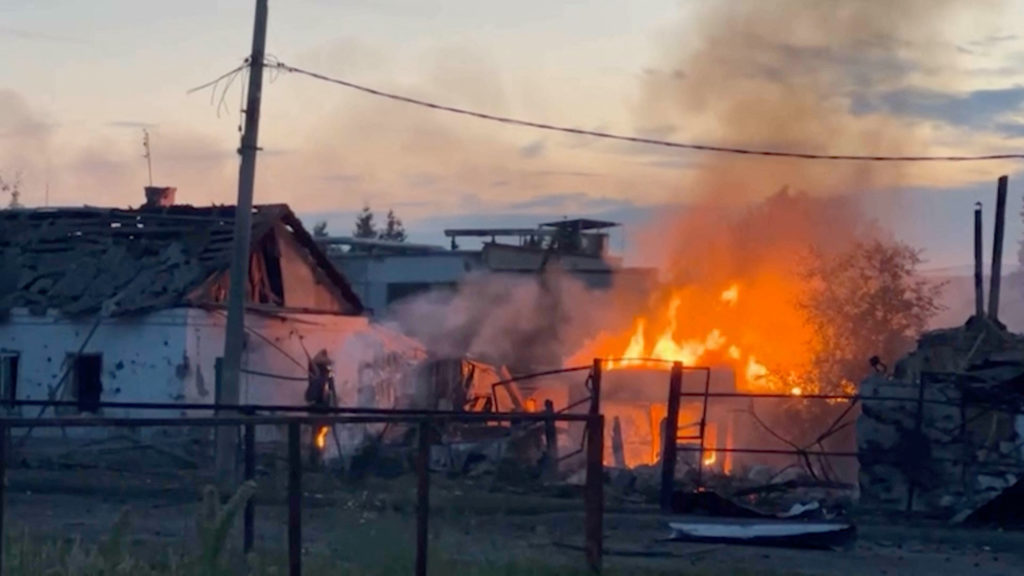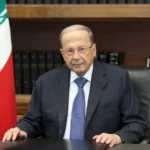It has now been three weeks since Ukraine launched a surprise and unprecedented assault within Russia’s internationally recognized borders. The Kursk region is now living in the time of war on its soil, between an initial shock not yet absorbed, especially by the evacuees, and already, the idea that it will have to get used to the presence of Ukrainian soldiers and the conflict. Our correspondent in Russia was able to go to the capital of the region in Kursk, but also to Lgov, about twenty kilometers from the fighting and 50 kilometers from the border with Ukraine. Between the two cities, an hour and a half of travel on a road marked by the influence of the conflict.
Between Kursk and Lgov, the hour and a half journey is marked by the influence of the conflict. There are five roadblocks over less than a hundred kilometers. The military police who check identities and search cars. Gas stations cluttered with green army trucks and, above all, all along, fields of sunflowers and soybeans turned over. A ribbon of smooth asphalt, you can see almost nothing except earth and sometimes barbed wire. It is, they say on RFI, an anti-tank trench. No planes, not a sound in the clear, sunny sky and on arrival in Lgov, a mayor who wants to get the following message across: the situation in his city is under control.
“Light, water, gas are supplied to the population without interruption. The hospital and ambulances, passenger transport, shops, pharmacies, gas stations are working. About 70% of the population is still there, or about 12,000 people. There is no ban on entering or leaving the city, the mayor said. The city was bombed by the enemy. More than 100 houses were damaged, including the sports facility of a school for young people and the swimming pool, which was seriously damaged. But mine clearance squads are currently working in the city. They are still defusing elements of cluster munitions. “
“I want to go home”
Lgov is crossed by a river, the Seim, and its bridge is intact, but several kilometers to the east, it is hell that Vitaly describes. This resident of Glushkovo who took refuge in Kursk nevertheless continues to return there regularly: “I have a farm, I have to go and feed the ducks and chickens. So, I take risks all the time. I’m coming, and if the Ukrainians ever hit the bridges over the river, I’ll hide in the bushes and watch where the drones are to avoid them.”
For others, any return is currently out of the question. Like this thirty-year-old who explains in tears that she had to leave her village on the outskirts of Soudja, now occupied by the Ukrainian army, on August 7, the day after they entered Russian territory: “We heard that Ukrainian troops were already approaching our village. We gathered some things to take with us and fled to Lgov. We spent the night there, in my husband’s truck. We thought we would come back the next day. And now, we still haven’t returned and we are in Kursk. How I would like to go home! But there you go, the border was not protected and the Ukrainians just had to cross it. Of course I’m angry. I want to go home.” »
Angry at who or what, we will never know. Evacuees or residents of the region, the vast majority are already turning their heads, as if they had already entered a form of new normality, of acceptance of a situation that for many could last for months.
In Kursk, the hotels are full
In Kursk, the capital of the region of the same name, evacuees flocked in as soon as Ukrainian soldiers arrived on Russian soil. The hotels are full. There are not many apartments left to rent.
The city has also set up reception accommodation and numerous humanitarian aid points. The Red Cross is also there, but the nerve center of the aid is the city circus. The huge building has been transformed into a humanitarian aid distribution hangar, run by volunteers including the energetic Ekaterina Lipina. “We work in three shifts with about a hundred volunteers each time. At night, there are even about twenty men to unload the cargo and prepare everything for a new day. So we work 24/7. Come and see: here, we have been brought onions, potatoes, eggs, water. The last time we had donations, they came from Dagestan. Before that, we had apples from Crimea, watermelons from the Krasnodar region, eggs from Chelyabinsk. It comes from all over the country. Then, come here, look on this side, we have strollers and cribs. There too, these are donations. And a mother who comes here, she takes what she needs. We just write down what she has taken, “she explains.
In this huge warehouse, you can also find hygiene and grocery kits. Donations and solidarity that also underline the shock wave that has shaken the whole of Russia. Even if in Kursk, no one can imagine for a second that the city or its power station an hour away could be occupied by the Ukrainian army.
This “anti-terrorist” regime, however, has serious resonances in Russia. Established in Chechnya in 1999 during the second war, it lasted ten years. It notably involves extended powers for the authorities, such as searches, control of movements and surveillance of communications and correspondence. To enter the territory of the region, it is now necessary for the Russian and foreign press to obtain official authorization, and it is better to be able to show it to obtain an interview.
This article is originally published on rfi.fr








